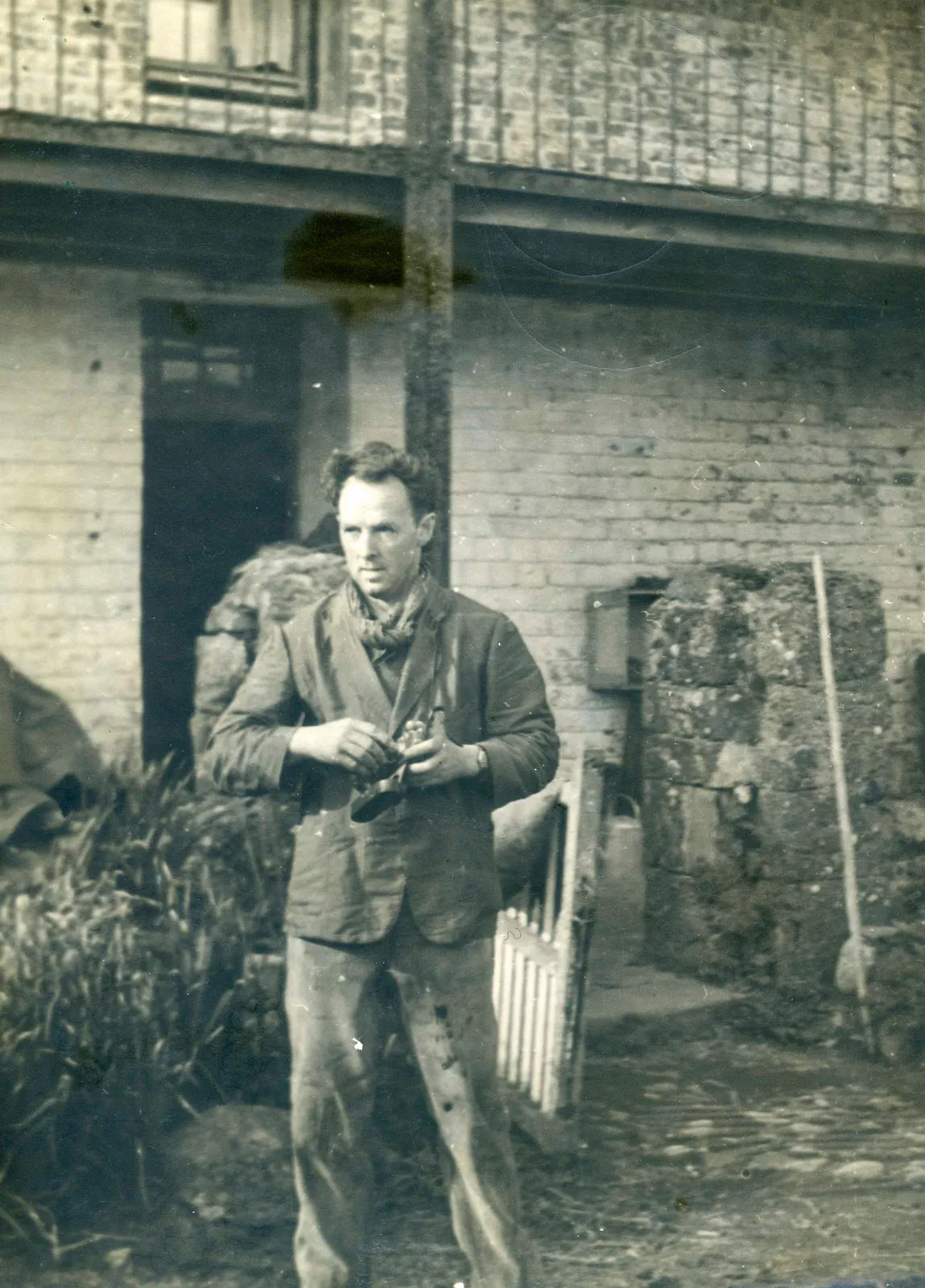Learn more about Ronald Lockley's fascinating life and discover how nature inspired his writing.
Stokholm island, one of Pembrokeshire’s island jewels, is a coveted destination for birdwatchers and nature-lovers. You must rough it a little, though – there are no showers, no microwave, poor mobile reception – and as sailings are infrequent, you are stuck there for three days minimum.
To get yourself in the mood, and reflect how things have changed, consider what Skokholm was like 90 years ago, when 24-year-old Ronald Lockley, then a hard-working farmer, and his first wife paid for a 21-year lease of the whole island and farm and moved there to begin a new life.

Aside from lighthouse keepers, they were the only humans living permanently on Skokholm at that time, the harshness of island life having defeated most previous inhabitants. The enterprising young couple used driftwood from a shipwreck to renovate a farmhouse, and attempted to raise chinchilla rabbits to make a living. However, Ronald Lockley soon found that he could do better through writing about life – and wildlife – on the island, and so began his new career.
Natural success
Lockley was a prolific and eloquent writer, as comfortable with scientific rigour as with wild flights of fancy. His studies of Manx shearwaters were of particular significance. These enigmatic birds are long-distance ocean wanderers that, as adults, only come ashore at night. Lockley was thus uniquely well-placed to study their breeding biology, and published 12 years’ worth of findings in an important monograph (Shearwaters, 1942). His interest in the migratory songbirds that visited the island led to his establishing the first British bird observatory in 1933. He also founded the Pembrokeshire Bird Protection Society, now part of the Wildlife Trust of South and West Wales.
Life on Skokholm became less lonely as Lockley’s writing became better known. Visitors included scientist and film-maker Julian Huxley, with whom Lockley made The Private Life of the Gannets (1934). This 10-minute film, which used dramatic aerial and slow-motion footage to document gannets nesting on nearby Grassholm island, won an Oscar for Best Short Subject in 1938.
As Skokholm’s fame spread, officials at Buckingham Palace asked Lockley to bring a razorbill to the palace as a pet for the young Elizabeth and Margaret. Lockley obliged, but the seabird was not pleased with its change in circumstances – film footage recorded it savaging Lockley’s hand as he opened its basket.
Warships to Watership Down
The Second World War brought an early end to the Skokholm idyll when Lockley provided the military with information about beaches in Wales that might be used by German agents. In the early 1950s, he bought a house on mainland Wales and it was here he indulged a long-standing interest in wild rabbits, setting up large outside enclosures for them, and glass panels sunk underground in warrens to allow him to view their underground activities.
The result of his four-year study was The Private Life of the Rabbit (1964), perhaps the best-known of more than 50 books he wrote in his lifetime. This monograph inspired Lockley’s friend Richard Adams to write Watership Down, a classic as noted for its biological rigour as its extraordinary story-telling. Lockley himself appears as a (human) character in another Adams novel, The Plague Dogs.
Lockley yearned for a return to island life. However, he had become disenchanted with Wales and its failure, in his eyes, to prioritise conservation of wildlife and habitats. In 1970 he decided to settle in New Zealand, a place that seemed to him to value and care for its wilderness. Here he continued his wildlife studies and explored many more islands. Appropriately, he appeared on Radio 4’s Desert Island Discs in 1980 (his luxury item was a telescope).
In his later years, he developed an interest in cetacean biology and conservation, and continued with his expeditions into his seventies. His last book was Dear Islandman, published in 1996, was one of Lockley’s many books and was a compilation of correspondence between Lockley and his then fiancé Doris. Lockley died in 2000 at the age of 96, and his ashes were scattered on Skokholm.
